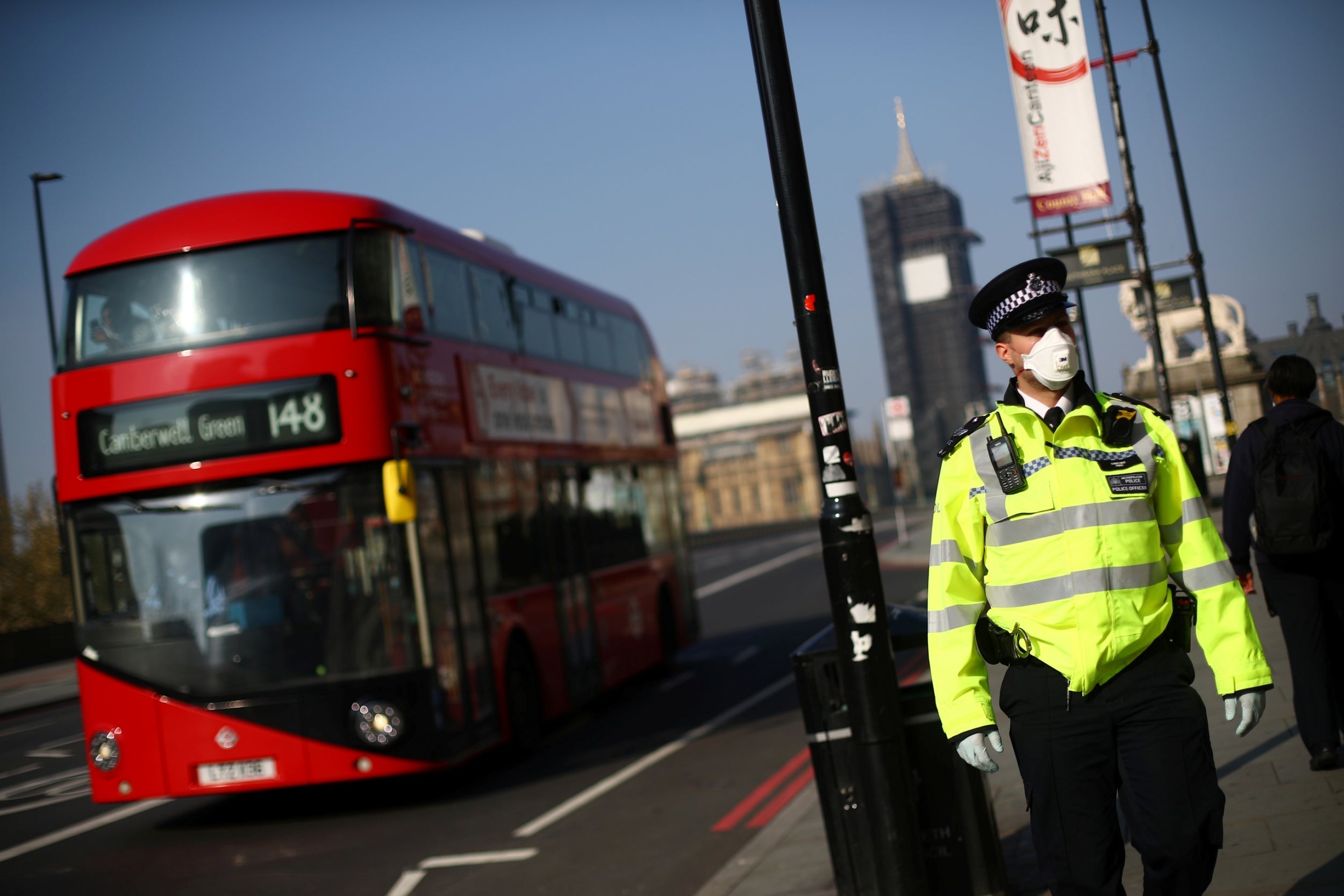Police wrongly fining children under coronavirus law
More than 3,200 fines issued in total under new lockdown law
Police officers have wrongly fined children for breaching the UK’s coronavirus lockdown, even though only adults can be punished under new laws.
Senior officers revealed that 39 fines had been handed to under-18s since the Health Protection Regulations came into force three weeks ago.
The national lead for out of court disposals, Deputy Chief Constable Sara Glen, said the notices “will be rescinded because the legislation doesn’t allow it”.
The admission came after two police forces wrongly charged people under the separate Coronavirus Act 2020, and several prosecution reviews are underway.
Parliament’s human rights committee warned that police may be punishing people “without any legal basis” amid confusion over the difference between the law and stricter government guidance.
More than 3,200 fines have been issued across England under new coronavirus laws in total, with the vast majority being handed to men under the age of 35.
Ms Glen said the current figures showed “no disproportionality in respect of ethnicity”.
Violations of the coronavirus lockdown appear to have spiked on the warmest days seen in a heatwave over Easter.
On Good Friday and Saturday - when temperatures rose above 20C for much of the UK - around 400 fines were given out each day. The figure dropped to 177 on Monday, when the temperature fell.
Ms Glen said the statistics said the figures suggested a “correlation to weather”, and that fines had been handed out at mass barbecues, on beaches and at beauty spots.
“The younger profile are going to stretch this boundary and good weather is driving people outside,” she added.
A total of 83 cases have reached court, where two miscarriages of justice have so far been admitted by police forces that wrongly applied the new Coronavirus Act.
“In the very small number of cases where police have got it wrong, we have put our hands up and corrected that,” she added.
“We will continue to abide by the principles of fairness, proportionality and common sense.”
Martin Hewitt, chair of the National Police Chiefs’ Council (NPCC), said the use of fines and arrests remained a “last resort” for officers.
“This is very new legislation that was rushed through because we are in a crisis,” he added.
“All legislation has issues when it’s first enacted. We need to carry on doing what we’re doing, and make sure the checks and balances in the system identify when issues do emerge.”
Mr Hewitt admitted that there had been “mistakes” but said police officers were “trying to do their best in very difficult and unusual circumstances”.
Following criticism of some police incidents and tactics, including the use of drones to film walkers and roadblocks, the senior officer said he was determined that “we do not impact on the relationship between the police”.
Several forces have had to retract public statements or social media posts by officers, including suggestions that people could be reprimanded for buying “non-essential” items in supermarkets.
“Where there have been examples where we’ve seen officers going a bit too far to get the message across, we have been public about the fact that was not what we wanted,” Mr Hewitt said.
Police have received more than 112,000 reports of coronavirus-related incidents and 178,000 of anti-social behaviour in recent weeks.

While calls to to 999 and 101 are down, the number of online reports has rocketed by almost two thirds, after many forces set up dedicated forms for alleged coronavirus lockdown violations.
“I think it’s perfectly legitimate if people are seeing people not abiding by rules for people to tell the police,” Mr Hewitt said.
“We will risk assess and triage any report we receive, to take whatever is the appropriate action.”
Overall crime recorded by police across England and Wales dropped by 28 per cent in the four weeks to Monday, compared to the same period in 2019.
Provisional data shows a 37 fall in reported rape, 27 per cent drop in serious assaults and personal robbery, residential burglary down 37 per cent and shoplifting halved.
A small number of crime types, including domestic abuse and online child sex offending, are expected to increase during the lockdown and police are encouraging people to continue reporting incidents.
Across the UK, 10 per cent of police officers and staff are currently absent through sickness, self-isolation or caring responsibilities.
But Mr Hewitt said policing remained in a “strong position” because of the drop in normal demand, and ranks being bolstered by voluntary special constables and retired officers returning to duty.
“Our message to the public is keep reporting crime to us – we are still here for you and our teams are working round clock to keep you safe,” he added.
“To those in danger or at risk, my message is we will come when you call for help.”

